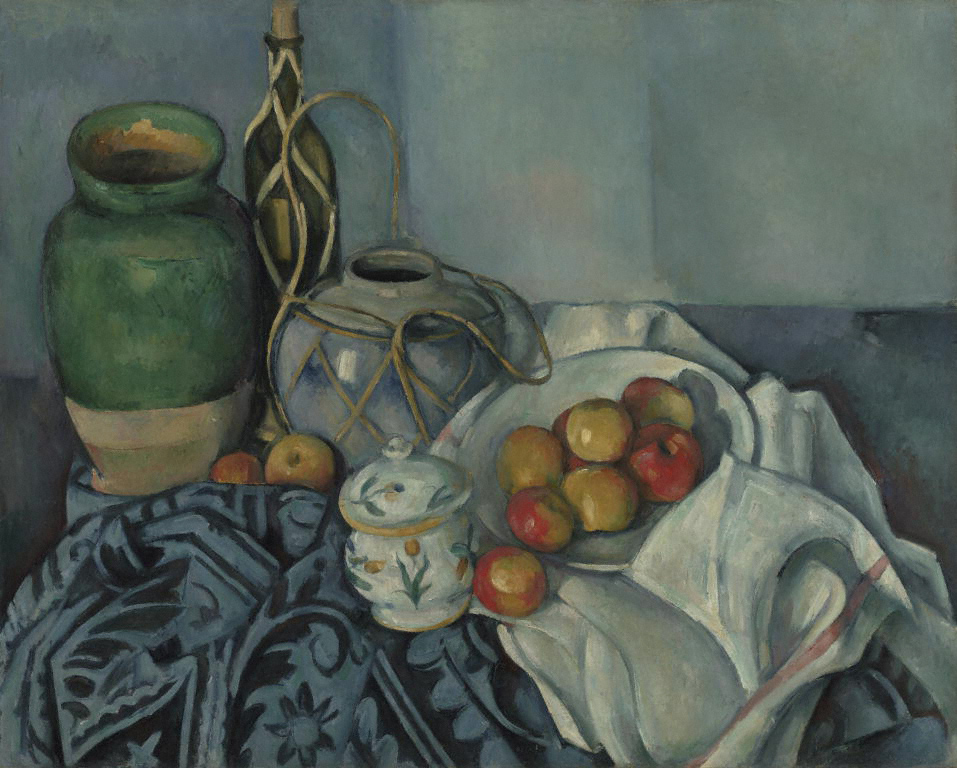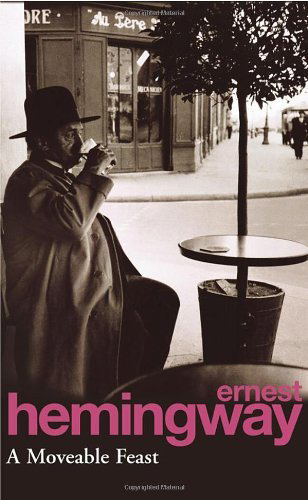アーネスト・ヘミングウェイ著『移動祝祭日』で目にした「articulate」の意味とは?
以前からちまちま読んでいた、アーネスト・ヘミングウェイ(Ernest Hemingway)著『移動祝祭日(A Moveable Feast)』を、ついに読み終わりました!
本を読み始めたきっかけはこちら→ 小説『グレート・ギャツビー』で何度も目にした「scorn」の意味とは? | ツカウエイゴ
その中で、”articulate” という単語を何度か目にしました。
I was learning very much from him but I was not articulate enough to explain it to anyone.(p.22)
Scott was very articulate and told a story well.(p.147)
I was very lucky always that my best friends were not writers and to have known many intelligent people who were articulate.(p.181)
ポイント
“articulate” はこの場合、3文とも「雄弁な」という意味で使われています。
- able to express your thoughts, arguments, and ideas clearly and effectively
- articulate writing or speech is clear and easy to understand
- [BIOLOGY] an articulate animal has joints (=parts of the body where two bones meet)
(1. の意味では人に対して、2. の意味では文章や話に対して使われるんですね!3. は生物用語で、「関節がある」という意味になります。)
つまり、1文目は「私は彼からたくさん学んだけれども、それを人に説明できるほど雄弁ではない」、2文目は「スコット(・フィッツジェラルド)はとても雄弁で、話がうまかった」、そして3文目は、「私の親友が物書きではなかったことと、話のうまい賢い友人をたくさん知っていたことは、本当にいつも幸運だった」と書いていたのでした。
補足
というわけで、この本を読んで私の印象に特に強く残ったのは大きく以下の3点でした。
<セザンヌの影響>
ヘミングウェイの文章は、描写がとても写実的です。でも、彼の文章に、画家のセザンヌが大きな影響を与えていたのは意外でした。
If I walked down by different streets to the Jardin du Luxembourg in the afternoon I could walk through the gardens and then go to the Musee du Luxembourg where the great paintings were that have now mostly been transferred to the Louvre and the Jeu de Paume. I went there nearly every day for the Cézanne and to see the Manets and the Monets and the other Impressionists that I had first come to know about in the Art Institute at Chicago. I was learning something from the painting of Cézanne that made writing simple true sentences far from enough to make the stories have the dimensions that I was trying to put in them.
(午後、リュクサンブール公園までさまざまな道を通って歩いていくと、庭を抜けてリュクサンブール美術館へ行くことができる。今ではルーブル美術館やジュ・ド・ポーム国立美術館に移された素晴らしい絵画の数々があった場所だ。セザンヌを始め、シカゴ美術館で知ったマネ、モネ、その他の印象派の画家の絵を見に、私はほぼ毎日通った。セザンヌの絵を見て、簡潔で正しい文章を書くだけでは、物語を生き生きと伝えることからはほど遠いということを学んだものだ。)

(Paul Cézanne [French, 1839 – 1906], Still Life with Apples, French, 1893 – 1894, Oil on canvas, Unframed: 65.4 x 81.6 cm (25 3/4 x 32 1/8 in.) Framed [outer dim]: 84.5 x 101.3 x 6 cm (33 1/4 x 39 7/8 x 2 3/8 in.), 96.PA.8. Digital image courtesy of the Getty’s Open Content Program.)
<ヘミングウェイの文章術>
ヘミングウェイの文章についての考え方や、文章との向き合い方も、ところどころで記述されていました。
It was wonderful to walk down the long fights of stairs knowing that I’d had good luck working. I always worked until I had something done and I always stopped when I knew what was going to happen next. That way I could be sure of going on the next day. But sometimes when I was starting a new story and I could not get it going, I would sit in front of the fire and squeeze the peel of the little oranges into the edge of the flame and watch the sputter of blue that they made. I would stand and look out over the roofs of Paris and think, “Do not worry. You have always written before and you will write now. All you have to do is write one true sentence. Write the truest sentence that you know.” So finally I would write one true sentence, and then go on from there. It was easy then because there was always one true sentence that you knew or had seen or had heard someone say. If I started to write elaborately, or like someone introducing or presenting something, I found that I could cut that scrollwork or ornament out and throw it away and start with the first true simple declarative sentence I had written.(p.22)
(仕事運が良いと思いながら長い階段を降りるのは気持ちの良いことだった。私はいつも何かを成し遂げるまで働き、次に何が起こるか知り得たところでやめていた。そうすれば、翌日も確実に続けられると思うからだ。でも、新しい物語を書き始めてつまづいた時は時々、暖炉の前に座って、火のすぐそばで小さなオレンジの皮をしぼり、青くぱちぱちと鳴るところを眺めることがあった。私は立ち上がってパリの家屋の屋根を見渡し、こう思ったものだ。「心配しなくていい。私はこれまでもずっと書いてきたし、これからも書いていく。本物の文を一文書けば良いんだ。知りうる限り本物の文を。」そしてついに私は本物の文を一文書き、そこから書き続けていく。そこからは簡単だ。もうすでに知っている、あるいはどこかで目にした、あるいはどこかで耳にしたような文は常にあるからだ。凝って書き始めたとしても、そういった余計な装飾は捨て去って、シンプルな平叙文から書き始めれば良いとわかった。)
後半の『On Writing in the First Person(一人称で書くこと)』という章立てについては、もう全文書き写したいくらいですが、めちゃ長くなるので控えておきます。
<ヘミングウェイの交友関係>
このエッセイには、同時代にヘミングウェイと交流があったさまざまな有名人が登場します。たとえば、詩人エズラ・パウンド(Ezra Pound)、作家ガートルード・スタイン(Gertrude Stein)、『ユリシーズ(Ulysses)』で知られる作家ジェイムズ・ジョイス(James Joyce)、今もパリにある『シェイクスピア書店(Shakespeare and Company)』の店主シルヴィア・ビーチ(Sylvia Beach)、そしてスコット・フィッツジェラルド(F. Scott Fitzgerald)。
個人的には、やはりヘミングウェイとフィッツジェラルドの交友関係が、読んでいて一番痛快でした。フィッツジェラルドは酒好きで、酒を飲むと不思議な行動を取ることも多く、ヘミングウェイの理解に及ばないこともたくさんあったみたいですが、それでもフィッツジェラルドに対するヘミングウェイのコメントを読むと、お互いに才能を認め合い、良い刺激を与え合う間柄だったのではないかと思えます。
He spoke slightingly but without bitterness of everything he had written, and I knew his new book must be very good for him to speak, without bitterness, of the faults of past books. He wanted me to read the new book, The Great Gatsby, as soon as he could get his last and only copy back from someone had loaned it to. To hear him talk of it, you would never know how very good it was, except that he had the shyness about it that all non-conceited writers have when they have done something very fine, and I hoped he would get the book quickly so that I might read it.
(彼はこれまで書いてきた全作品について、軽蔑的に話すことはあっても恨みを見せることはなかった。そして私は、彼が過去の作品の欠点について恨みなく話せるほど、新作が良いものに違いないとわかった。彼はその新作『グレート・ギャツビー』の最終原稿を、貸している人から手元に戻り次第私に読んでもらいたいと思っていた。彼が話すのを聞いても、その本がどんなにすばらしいものかわからない。わかるのは、謙虚な作家がすばらしい作品を書き上げた時に見せる恥じらいくらいだ。私は、彼が本を早く取り戻してくれたら良いのに、と思った。)
面白いのは、歴史に残る作品『グレート・ギャツビー』を書いた直後のフィッツジェラルドは、当時本の売り上げに悩んでいたこと。
Scott told me that he had heard from Maxwell Parkins that the book was not selling well but that it had very fine reviews. I do not remember whether it was that day, or much later that he showed me a review by Gilbert Seldes that could not have been better. It could only have been better if Gilbert Seldes had been better. I believe it was much better later. Scott was puzzled and hurt that the book was not selling well but, as I said, he was not at all bitter then and he was both shy and happy about the book quality.
(スコットはマックスウェル・パーキンスから、本の売り上げはよくないが評価はとても良いと聞いていると教えてくれた。その日だったか、もっと後になってからだったかは覚えていないが、ギルバート・セルデスのレビューも見せてくれた。それはこのうえなく素晴らしいものだった。ギルバート・セルデスがそれ以上素晴らしくなければ、レビューもそれ以上よくならないだろう、というほどのものだった。スコットは本の売り上げがよくないことに困惑し、傷ついていたが、前述した通り、彼は当時は全く恨みを持たず、本の出来に関して恥じらいつつも嬉しそうだった。)
この本を読むと、フィッツジェラルドやヘミングウェイでもやっぱり書くことで悩んだりすることがあったんだな〜としみじみ感じるとともに、彼らに親しみがわいてきます。
ちなみに、アーネスト・ヘミングウェイの孫ショーン・ヘミングウェイ(Sean Hemingway)による前書きを読んで知ったのですが、なんとフィッツジェラルドも同時期のパリの様子を『バビロン再訪(Babylon Revisited)』(1931年 ※村上春樹訳のタイトルは「バビロンに帰る」)という短編にまとめていたそう。
パリという街がヘミングウェイに与えた印象と、フィッツジェラルドに与えた印象を読み比べるのもおもしろそうです。





